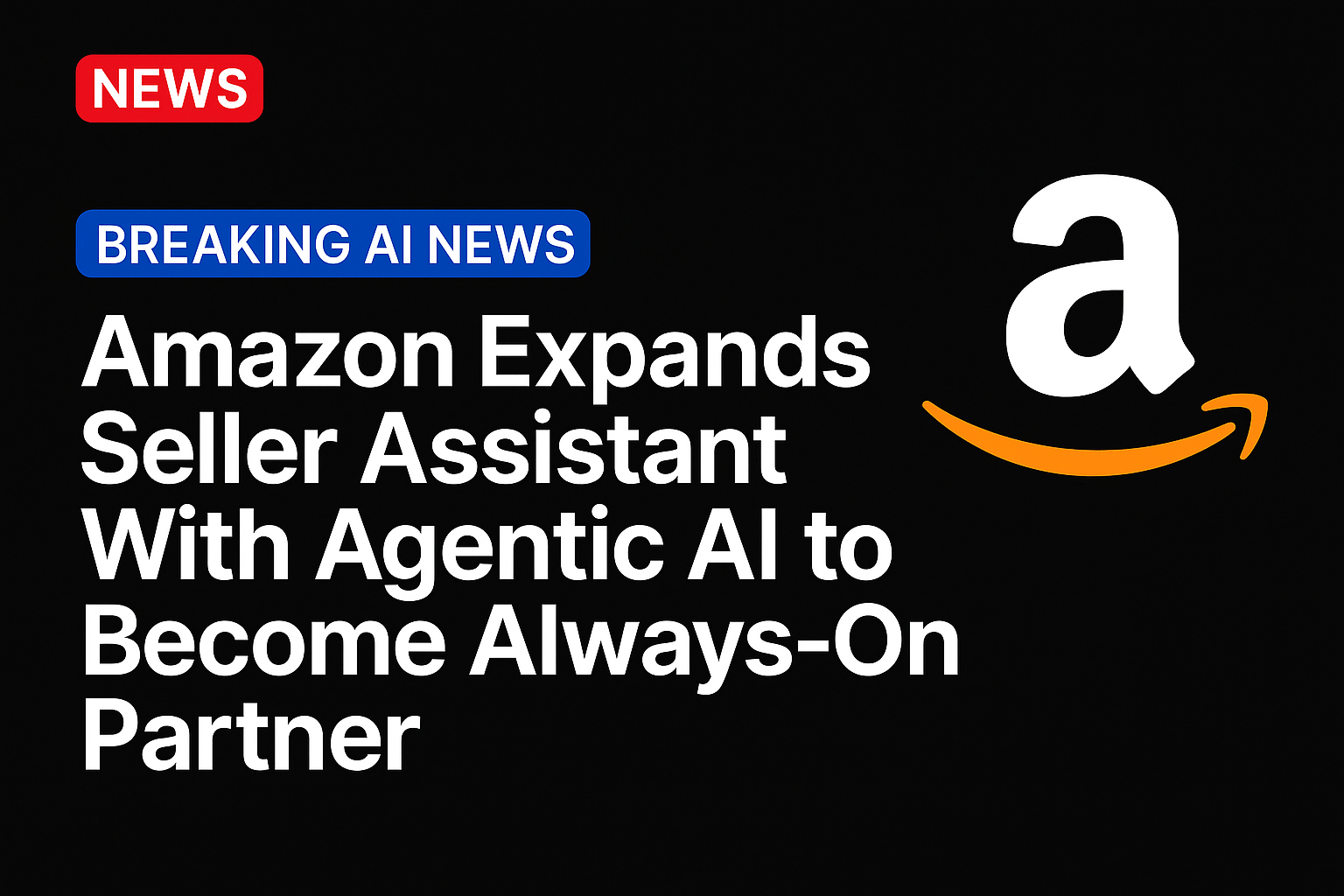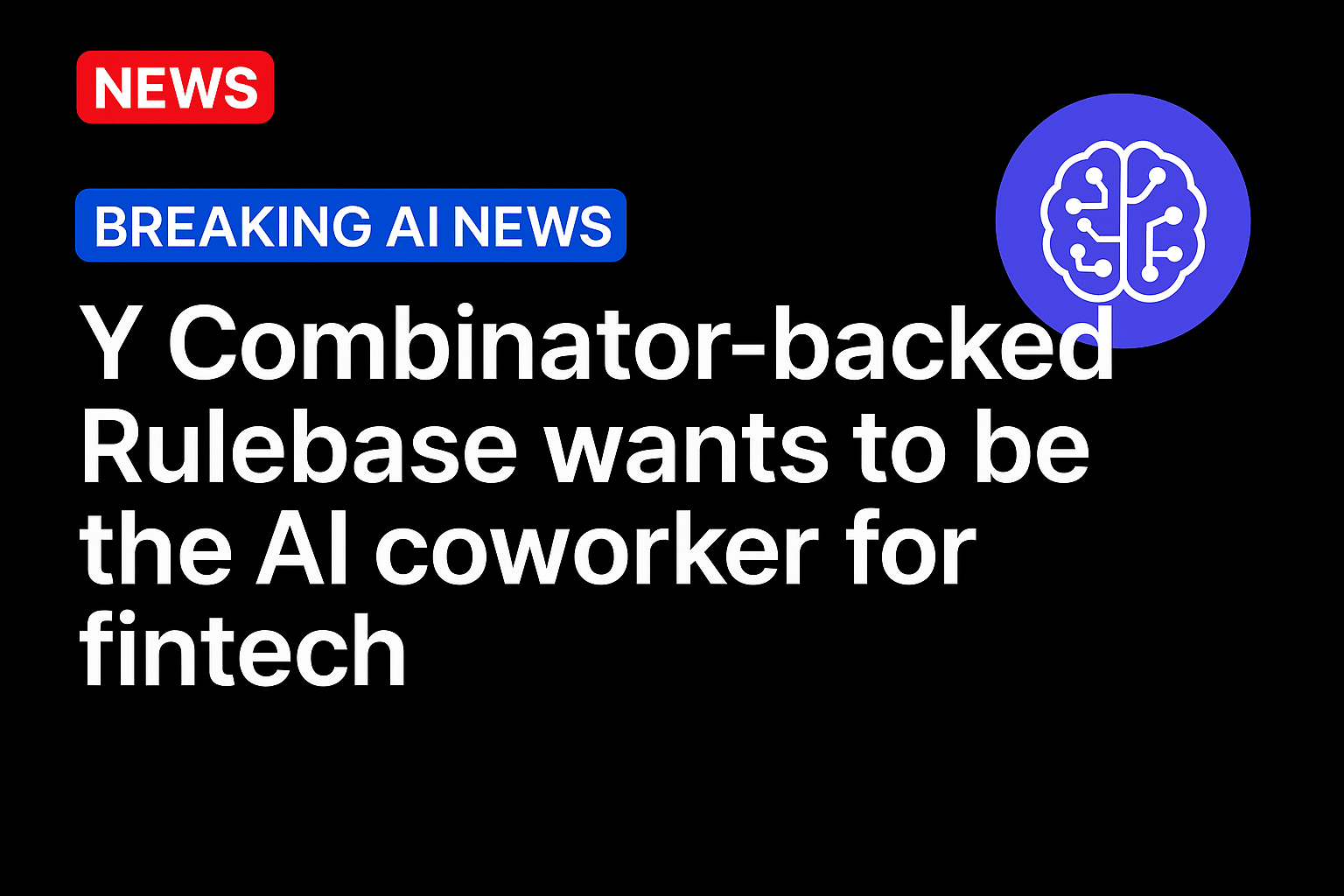
A year after introducing Project Amelia as a generative artificial intelligence (AI) assistant to answer seller questions, Amazon has upgraded the tool with agentic AI that can reason, plan and take actions with a seller’s approval.
The company said in a press release Wednesday (Sept. 17) the enhanced Seller Assistant now goes beyond Q&A guidance to monitor inventory, manage compliance and generate advertising campaigns, positioning the eCommerce giant as a more active partner to the millions of independent merchants on its marketplace.
Mary Beth Westmoreland, vice president of worldwide selling partner experience, said the announcement represents “an important step forward that allows AI to not just respond, but to reason, plan, and help take action with a seller’s permission.”
From Conversational Help to Agentic AI
Amelia is a conversational assistant that could answer operational questions and provide quick guidance. The new iteration goes further, with AI built on Amazon Bedrock and models including Amazon Nova and Anthropic Claude. It uses insights gathered from nearly 25 years of working with independent sellers to act as what Amazon describes as an always-on operational partner.
Westmoreland said the capabilities are designed so “sellers can go from handling every task themselves to collaborating with an intelligent assistant that works proactively on their behalf around the clock, while always keeping sellers in control.”
Smarter Inventory Management
Inventory has long been one of the biggest challenges for Amazon merchants. As PYMNTS noted in earlier reporting, sellers are under pressure to balance storage costs, delivery expectations and demand forecasting. The upgraded Seller Assistant now monitors inventory levels, flags slow-moving items before long-term fees apply and recommends when to mark down or remove products.
For seasonal surges, the system reviews a seller’s catalog, compares historical demand with current trends and produces a detailed inventory plan. Recommendations extend to allocation between Fulfillment by Amazon and Amazon Warehousing and Distribution, giving sellers clearer tradeoffs between delivery speed and cost.
Compliance and Account Health
Compliance is another a major friction point for smaller merchants. The upgraded assistant now scans in the background for potential account health issues, from new product safety regulations to customer-service metrics that could trigger penalties.
If a product listing inadvertently implies that it functions as a pesticide, the assistant alerts the seller, explains the regulatory concern and provides resolution options. With approval, it can implement the fix before the violation disrupts sales.
For new listings, the assistant’s automated document analysis checks for missing certifications such as UL standards and guides sellers through what to add and why.
Advertising and Growth
Advertising was another early priority. Last year, Amazon was already investing in generative AI to help sellers sharpen product discovery and visibility. The new creative studio builds on that path, turning conversational prompts into Sponsored Ads enriched with Amazon’s shopping-signal data.
In one example, a smart bird-feeder brand used the tool to produce a Father’s Day Sponsored Video campaign that lifted click-through rates by 338%, generated 89% new-to-brand offers and delivered a 121% return on ad spend.
Beyond ads, the assistant can analyze sales patterns and customer behavior to recommend new product categories, refine marketing strategies and assemble seasonal playbooks. Amazon said it will also guide sellers through international expansion opportunities.
Seller Reactions and Rollout
Early users have compared Amelia to having a business consultant embedded in their workflow. Alfred Mai, founder of ASM Games, said the assistant now provides answers and actions immediately, eliminating the need to dig through dashboards.
The upgraded Seller Assistant is available to U.S. sellers now, with rollout to other countries planned in the coming months. PYMNTS noted last year that Amazon typically scales new tools internationally once initial performance is validated.
Strategic Implications
Amazon’s expansion of Amelia underscores its strategy to become an operational partner for sellers rather than a passive platform. By embedding AI into inventory, compliance and advertising, Amazon not only reduces friction for merchants but also strengthens retention and loyalty.
Other platforms such as Shopify, Walmart and eBay are rolling out their own AI-enabled tools for merchants, but Amazon’s advantage lies in its combination of marketplace data, fulfillment infrastructure and integrated services.
For sellers, the potential gains include fewer hours on administrative tasks, lower storage fees, earlier compliance interventions and smarter advertising campaigns. The risks are also evident. Sellers must trust the system’s accuracy and maintain full control over actions. Transparency into why suggestions are made, and clear approval flows will be critical to adoption.
Westmoreland said the goal is to let merchants focus on building products and customer relationships while Amazon’s AI handles operational complexity. “Our agentic AI capabilities are designed to work seamlessly throughout the entire selling experience,” she said, “so sellers can focus on innovation and growth.”
Source: https://www.pymnts.com/




